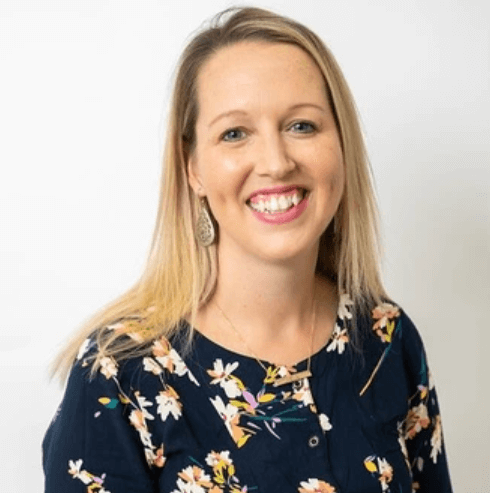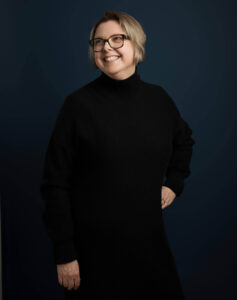It began with a tweet. I was feeling sad and frustrated. My husband had given up a leadership role he loved to move for my academic career… again. This was his sixth job in 10 years, a new role every few years to allow for my growth through graduate schools and adjunct work. We felt fortunate that—to some degree—he had moved up the corporate ladder, a testament to his grit. He had worked as both a manager and assistant director in the non-profit sector and in higher education. He had also earned his master’s degree in public management, hoping to make himself as marketable as possible. But he had to accept “stop gap” roles along the way—work that was harder to explain as a part of his larger career goals.
The latest move hit hardest. I had secured the elusive tenure track position in rural Minnesota. My employer assured me that they were committed to helping partners find employment. I took the job, and we held our breath. But almost two years in, he hadn’t found a position he was happy with. The institution’s formal support system was a job board rather than a network; and most of the jobs were at least an hour from our rural location. My partner found a position in higher education an hour away, but he was back working in an entry level role with less pay, less time to spend with the kids, and less time to build community where we lived. I couldn’t get over the crushing feeling that his professional development and personal happiness continued to come at the expense of mine.
On January 14, I woke up and tweeted, “I wish academics talked more about the effects of moving on the ‘trailing spouse.’ How our very qualified spouses have to give up job after job to follow us to the point of not looking so qualified anymore. #thisishard”. I had a few hundred followers and expected a friend or two to offer encouragement. I could not have imagined that by the end of the day, 242,000 people would view the tweet. At the end of day one, it had received over 2,000 likes, 145 retweets, and 90 comments. Currently, the tweet has been viewed by over 660,000 people, with almost 5,000 likes and 246 retweets. A person I did not know emailed me to say the tweet had clearly struck a chord. Two more direct messaged me to ask if we could form our own support group, and hundreds more commented to simply share their stories.
I was blown away by how many people wrote that they “felt seen,” with one mentioning they gasped because they had longed for academics to broach this subject. Another wrote, “Holy cow, what a resonate point.” Military spouses and those from other fields commented in solidarity. The support – and shared frustration – was overwhelming. Mary Bralove coined the term “trailing spouse” in the Wall Street Journal in 1981, largely to refer to wives who followed spouses overseas. While some people balked – including some on my twitter thread – at the passiveness of the term, Bralove purposely used such language to describe how spouses felt lost and often alone as they left behind careers, family, and friends to support their partner’s careers.
I was moved by the sense of community that emerged as many acknowledged this reality for themselves or their partners, offering support to me and each other. I chuckled at the person who lightened the thread by suggesting John McClane in the DIE HARD films is a “trailing spouse.” And he literally kicked ass. But the comment that stuck with me wasn’t a comment at all. It was a question: “Okay, but what now?” It is a question I am not sure I am all that qualified to answer. I am only one person. My partner’s story is unique to him. Yet the power of social media is a reminder of how our stories intersect to reveal the broader issues at play. It is a question, clearly, that deserves to be answered. In this case, where are the support networks for people who dedicate their lives to building and amplifying support networks for our students?
For me, personally, there are two issues I believe we can tackle together. The first is the lack of transparency. Why weren’t we more prepared for this reality and taught how to navigate it in graduate school? Why are we not told what questions to ask on the job market to ensure the claim that institutions will “provide support” is not just lip service? What type of bargaining power do we have? I was heartened by the one professor who shared the letter she gives to her graduate students broaching this topic. I believe that as graduate students, we should ask these types of questions of our programs and mentors and find ways to streamline the answers across programs and platforms to empower academics and their families.
The second issue is around the dearth of support systems. While I do not claim this is true for every institution, I do wonder what it would take to create a common practice for each institution. One solution may be establishing a position in the Career Center on campus that utilizes the institution’s deep networks of employers, alumni, and community connections to help “trailing spouses” find jobs. What does it suggest that institutions that talk ad nauseum about creating “inclusion” and “belonging” for their students have not put as much action into doing so for staff and faculty? Are we not worthy of this same sense of stability and belonging? After all, both are at the heart of retention. The lack of formal support for “trailing spouses” to help secure employment and build community through things like professional networks and personal support groups has a ripple effect on who chooses to come to and stay at institutions. For spouses of color like mine in predominantly white and rural areas, this experience is magnified, and affects what kind of turnover students of color may experience as well. I believe that even as graduate students we can begin to create support groups for “trailing spouses” that welcome spouses of students, faculty, and staff. We can build bridges to affect the institutional change we wish to see.
Again, I don’t claim to have all the answers, but, as many military spouses noted, we don’t have to figure it out alone. There is research happening about this experience in other fields, and higher education can use that data to effect real change. What I do know is that for a day or two on Twitter, my comment hit a nerve. A person emailed me and said, “Congratulations on starting a much-needed discussion on academic twitter.” To be frank, I don’t think I started it. I think I merely acknowledged and amplified what was already there, a reality exacerbated by the adjunctification and corporatization of higher education. We, like our students, don’t want to be merely statistics. Neither do our spouses or families. And for a day or two on Twitter, I felt most proud that I could show this thread to my husband, and he felt less alone.
Twitter is an excellent avenue for building community, but I believe it is possible to do that for “trailing spouses and families” in a more systemic way. Having the conversation in as many forums as possible is an important first step. But the institutions who seek to recruit and retain faculty and staff must turn those ideas into action, and we must demand that they do. Our spouses and families have sacrificed so much for us to have our moments. It’s time we use our moment to build a movement.

How to Use SciSpace Library to Organise and Understand Your Research
The SciSpace Library is built to help you organise research papers, pull out what matters, and actually understand the papers you are working with. It turns a mess of PDFs into something searchable, interactive, and manageable without the constant back-and-forth between tabs, folders, and notes. In this blog post, we will introduce SciSpace Library and outline the various ways in which you can use it and its key features.





